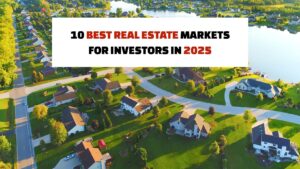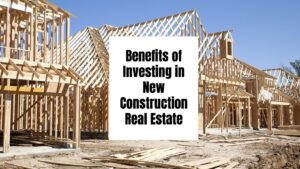One of the most compelling reasons to consider mobile home park investments is their exceptional yield potential. Mobile home parks frequently boast starting capitalization rates exceeding 10%, in contrast to other commercial real estate sectors, such as apartments, which typically have cap rates of around 7%.
Retail properties can sometimes fall to even lower cap rates of 6% or below. This substantial difference signifies the potential for higher returns in the mobile home park sector. Investors in mobile home parks often experience cash-on-cash returns of around 20%, which adds to the appeal of this asset class.
Additionally, mobile home park investments generally trade at cap rates that are 1-3 percentage points higher than comparable quality multifamily assets, further enhancing their attractiveness.
Another significant advantage of mobile home parks is their operational efficiency. Mobile home parks typically have lower operating expenses, with operating margins ranging from approximately 35% to 42%. In comparison, operating margins for traditional apartments tend to hover between 55% and 60%.
This higher operating margin means that mobile home parks can retain a larger portion of their rental income. Moreover, tenant turnover in mobile home parks is considerably lower than in traditional multifamily housing, with mobile home parks experiencing an annual turnover rate of just 10-15%, while apartments can see turnover rates exceeding 60%.
This stability leads to consistent cash flow and reduced costs associated with tenant and unit turnover. The structure of the mobile home park market creates high barriers to entry, ensuring sustained demand for existing parks. The construction of new mobile home parks is rare in the United States, with fewer than 10 new parks built each year due to strict zoning restrictions and community opposition.
This scarcity helps maintain the value of existing properties and provides a competitive edge to current investors. Additionally, when tenants consider moving their mobile homes, they face significant costs, typically ranging from $5,000 to $10,000 for relocation and reinstallation. This financial burden creates high switching costs, making tenants less likely to leave their current community.
Factors That Can Influence These Yields:
- Housing Market Predictions for the Next 4 Years: 2025 to 2028
- The Important Tax Benefits of Real Estate Investing
- 18 Best Real Estate Investing Books For Beginners
- 10 Tips to Be Successful in Real Estate Investing
- Risks of Real Estate Investing: What You Can Do About Them?
- What is Passive Real Estate Investing?
- Housing Market Predictions for Next 5 Years (2025-2029)
- Real Estate Forecast for the Next 5 Years: Future Predictions?
- Mortgage Rate Predictions for Next 5 Years
- Mortgage Rate Predictions for the Next 2 Years
- Mortgage Rate Predictions for Next 3 Years: Double Digit Rise











